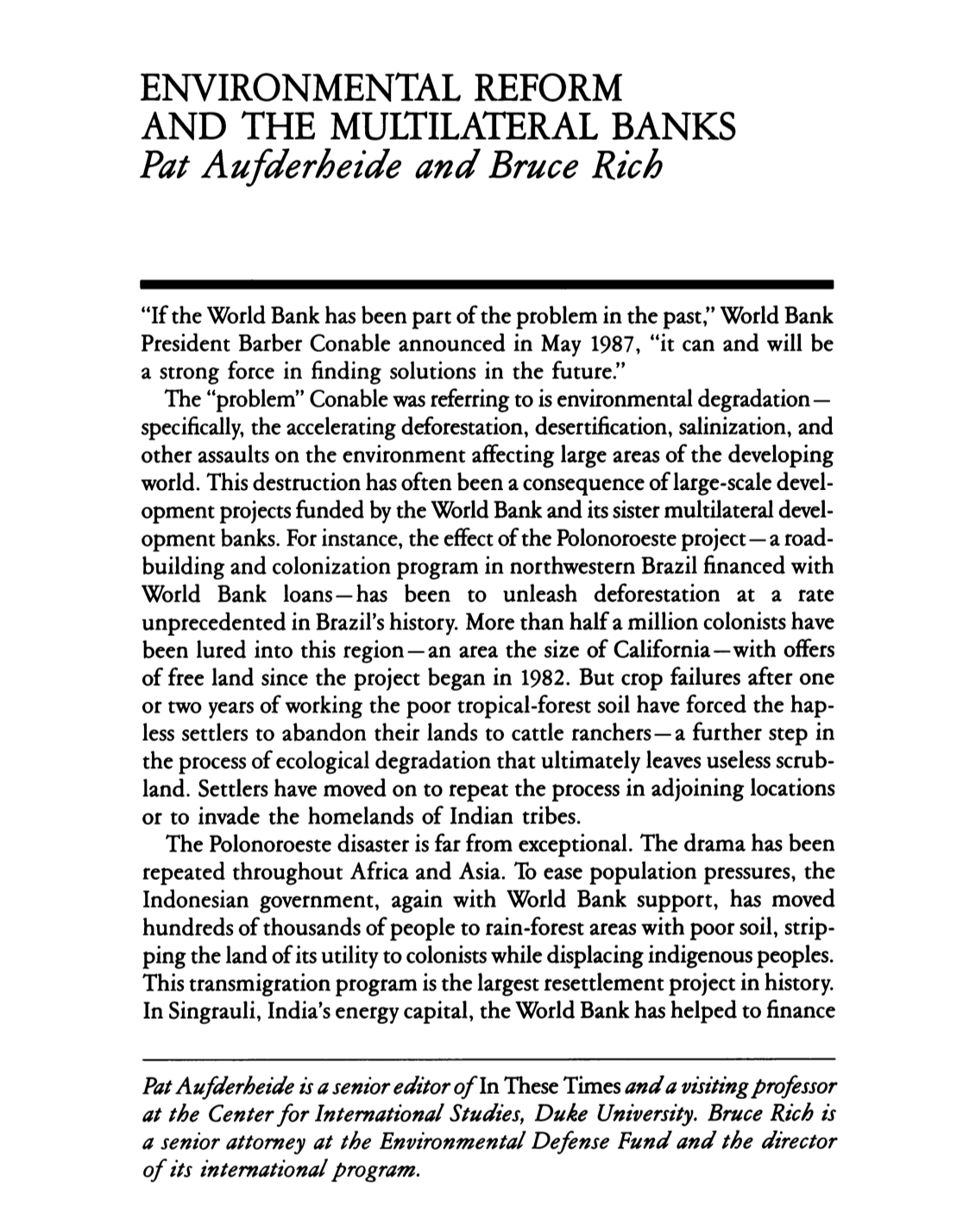- Bruce Rich and Pat Aufderheide
- World Policy Journal, Vol 5, No. 2
- Spinge, 1988
- pp. 301-321
"If the World Bank has been part of the problem in the past," World Bank President Barber Conable announced in May 1987, "it can and will be a strong force in finding solutions in the future." The lessons learned in the struggle to gain citizen power in a process so long controlled by a small elite of financial and development bureaucrats merit careful consideration: the need to create an independent pressure base, to use existing channels of power, to acknowledge and to give full expression to the controlling organizations' mandates, to develop a soundly researched case that includes not only specific evidence of damage but concrete alternatives, to build coalitions that cut across long-standing antagonisms, and to increase public awareness. These are all basic to policy intervention in any arena, and, indeed, to constructive social organizing and political advocacy in general.



